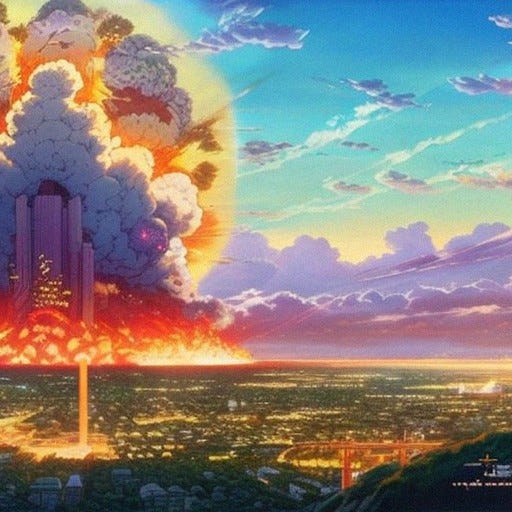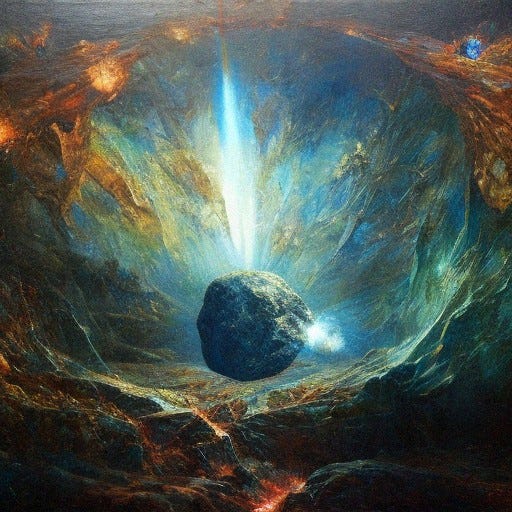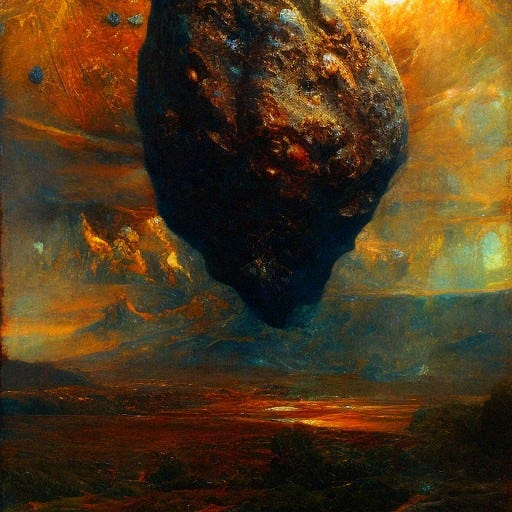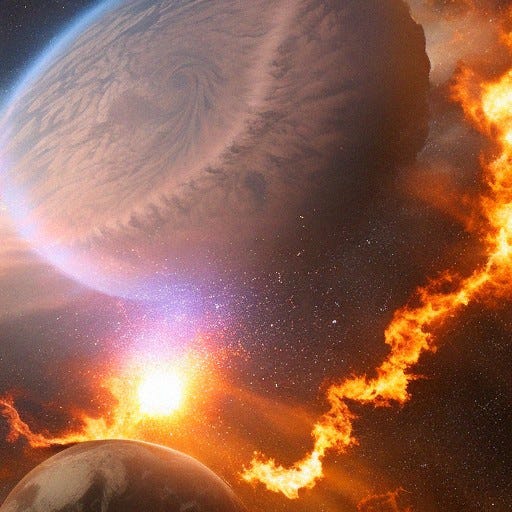
Well, I don’t know about you, but I’m not planning on going anywhere for at least the next 50 years. I’ve got too many Netflix shows to binge-watch and memes to scroll through! But in all seriousness, the potential for human extinction is a serious issue that should not be taken lightly. It’s important for us to take steps to protect ourselves and the planet we call home.

What are some ways it could go down?
Well folks, it looks like we might just be living on borrowed time. Scientists have predicted a whole host of ways that humanity could kick the bucket in the next half century. Let’s run through a few of the more popular theories, shall we?
First up, we’ve got the classic “nuclear winter” scenario. With tensions between nations at an all-time high and the proliferation of nuclear weapons, it’s not too hard to imagine a scenario where a few well-placed bombs could send the planet into a deep freeze. Goodbye sunshine, hello eternal darkness.
Next up, we’ve got the ever-popular “artificial intelligence takeover.” As our machines get smarter and smarter, there’s always the chance that they’ll decide that we’re no longer necessary and start building deathbots to wipe us out. Just think, you could be scrolling through Instagram one minute, and the next thing you know, you’re being hunted down by a rogue AI. Fun!
And then there’s the “environmental collapse” scenario. With global warming, pollution, and overpopulation all on the rise, it’s not hard to imagine a future where the planet can no longer support human life. So long, fresh air and clean water.
And finally, we’ve got the “rogue asteroid” scenario. We may have dodged a bullet with the recent flyby of Apophis, but there’s always the chance that a giant rock could come hurtling out of space and wipe us all out. It’s not a question of if, but when.
So there you have it, folks. A few of the ways that humanity could go extinct in the next 50 years. But don’t worry, there’s still time to stock up on canned goods and build a bunker. Just in case.

Who Says So?!?
Some scientists and scholars who have predicted human extinction include:
Paul Ehrlich, a biologist and ecologist who wrote “The Population Bomb” in 1968 which predicted mass starvation and societal collapse due to overpopulation
Guy McPherson, an ecologist and professor emeritus who has written about the potential for “near-term human extinction” due to climate change
Martin Rees, an astronomer and cosmologist who wrote “Our Final Hour” in 2003 which discusses the potential for human extinction due to natural disasters, technological disasters, or intentional harm from other civilizations.
Nick Bostrom, a philosopher and researcher at Oxford University, who wrote “Superintelligence: Paths, Dangers, and Strategies” in 2014, which discusses the possibility of human extinction as a result of the development of superintelligent AI
Many other scientists and experts have also written about the potential for human extinction, usually in the context of specific threats such as nuclear war, pandemics, or environmental collapse.

Have we ever come close to extinction before?
The Toba eruption: About 75,000 years ago, a supervolcanic eruption in Indonesia is believed to have reduced the human population to as few as a few thousand individuals. The ash and sulfuric acid released by the eruption would have caused a “volcanic winter” and a severe reduction in the availability of food.
The Black Death: The bubonic plague outbreak that occurred in the 14th century is estimated to have killed up to 200 million people, or about one third of the world’s population.
The Spanish flu: The 1918 flu pandemic is believed to have killed between 50 and 100 million people worldwide, or about 3-5% of the global population.
The Cuban Missile Crisis: In 1962, the United States and the Soviet Union came dangerously close to nuclear war after the Soviet Union placed nuclear missiles in Cuba.
The Cold War: The United States and the Soviet Union had a decades-long arms race that brought the world to the brink of nuclear war several times.
The asteroid impact that wiped out the dinosaurs 66 million years ago.
The Permian-Triassic extinction event, which wiped out more than 90% of marine species and 70% of terrestrial vertebrates 252 million years ago.

Well folks, let’s be real here, humanity has had its time in the sun. We’ve polluted the earth, destroyed natural habitats, and caused mass extinction of other species. So, if we were to go extinct, would it really be such a bad thing? I mean, sure, it would suck for us, but the planet would probably take a sigh of relief and start healing itself without us. Plus, think about all the memes and jokes that would be made about us in the future. “Humans: Here for a good time, not a long time.” “Humans: The ultimate self-destruct button.” It’ll be hilarious! Just kidding, extinction is not something to be taken lightly, and it’s important that we take steps to prevent it.